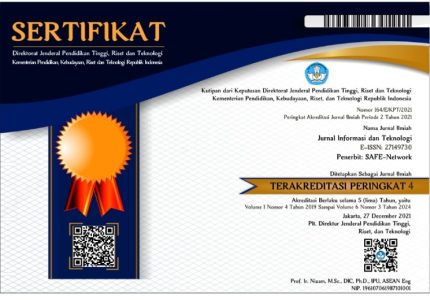Overview of Business Technology Internships
Business technology internships provide aspiring professionals with valuable hands-on experience in the intersection of business operations and technological innovation. These internships offer opportunities to develop technical skills, understand industry trends, and contribute to real-world projects within a corporate environment. They serve as a crucial stepping stone for students and early-career individuals aiming to build a successful career in the dynamic field of business technology.
Definition and Scope
Business technology internships are structured programs designed to provide students and emerging professionals with hands-on experience in the intersection of business operations and technology solutions. These internships offer practical exposure to various aspects such as software development, data analysis, IT management, and digital transformation initiatives within a business environment.
The scope of business technology internships encompasses a wide range of activities including assisting in the development and implementation of technological tools, supporting cybersecurity measures, analyzing business data, and contributing to technology-driven projects. Interns gain insight into how technology supports business strategies and operations, preparing them for future careers in technology management, business analysis, and digital innovation.
Importance in Modern Business Environments
Business technology internships offer valuable hands-on experience for students and emerging professionals seeking to develop their skills in a rapidly evolving digital landscape. These internships provide practical exposure to various technological tools, software, and systems that are essential for modern business operations. Participants gain insights into how technology drives efficiency, innovation, and competitive advantage in contemporary companies.
In today’s business environment, the importance of technology internships cannot be overstated. They help bridge the gap between academic knowledge and real-world application, preparing interns for successful careers in technology-driven roles. Organizations benefit from fresh perspectives and innovative ideas brought by interns, while interns acquire the skills and industry connections necessary for future employment. Overall, business technology internships are a vital component for fostering talent, promoting technological literacy, and maintaining a competitive edge in the modern business landscape.
Types of Business Technology Internships
Business technology internships offer students and emerging professionals valuable opportunities to gain hands-on experience in the intersection of technology and business operations. These internships vary widely, providing roles in areas such as software development, data analysis, cybersecurity, IT support, and digital transformation projects. Engaging in different types of internships allows aspiring professionals to develop specialized skills and explore diverse career paths within the dynamic field of business technology.
Technical Support and IT Operations
Business technology internships offer valuable opportunities for students and recent graduates to gain practical experience in various aspects of technology within a business environment. Two common types of these internships are Technical Support and IT Operations, each focusing on different skill sets and responsibilities.
Technical Support internships involve assisting end-users with troubleshooting hardware and software issues, providing customer service, and maintaining IT systems. Interns in this area develop skills in problem-solving, communication, and technical troubleshooting while supporting the daily IT needs of a company.
IT Operations internships focus on managing and maintaining the company’s IT infrastructure, including network administration, systems management, and cybersecurity practices. Interns in this field gain hands-on experience with network setup, system updates, and operational procedures that keep business technology running smoothly. Both internship types are essential for building a strong foundation in business technology careers.
Data Analysis and Business Intelligence
Business technology internships offer valuable opportunities for students and recent graduates to gain practical experience in various aspects of technology within a business setting. These internships can focus on different areas, including data analysis and business intelligence, which are crucial for informed decision-making and strategic planning.
Data analysis internships involve working with large datasets to uncover insights, trends, and patterns that can influence business strategies. Interns often use tools like Excel, SQL, Python, or R to clean, analyze, and visualize data, helping organizations make data-driven decisions.
Business intelligence internships, on the other hand, emphasize developing and managing systems that collect, analyze, and present business information. Interns may work with BI tools like Tableau, Power BI, or Looker to create dashboards, reports, and visualizations that enable stakeholders to understand complex data and optimize operations.
Both types of internships provide a foundation in essential skills such as data management, analytical thinking, and technological proficiency. They prepare interns for careers in data-driven roles and collaborative environments where technology plays a vital role in business success.
Software Development and Engineering
Business technology internships offer a variety of opportunities for students and emerging professionals to gain practical experience in the industry. These internships often focus on areas such as software development, engineering, IT support, and digital transformation, providing hands-on learning environments. Interns in software development typically work on coding, testing, and deploying applications, gaining skills in programming languages, frameworks, and software lifecycle management. Engineering internships, on the other hand, may involve designing and implementing infrastructure, network systems, or technical solutions to improve business operations. Overall, these internships are designed to foster technical skills, problem-solving abilities, and industry knowledge, preparing participants for future careers in the rapidly evolving field of business technology.
Cybersecurity and Risk Management
Business technology internships offer a wide range of opportunities for students and recent graduates to gain practical experience in various fields within the industry. These internships typically encompass areas such as software development, IT support, data analysis, and project management, providing a comprehensive understanding of business technology operations. One prominent specialization within these internships is cybersecurity, where interns focus on protecting organizations from cyber threats, analyzing security protocols, and implementing safeguards to ensure data integrity. Additionally, risk management interns work on identifying and mitigating potential technological and operational risks, which is crucial for maintaining business continuity and compliance. Overall, these internships serve as valuable platforms for developing technical skills and understanding the strategic role of technology in business success.
Product Management and User Experience
Business technology internships offer a diverse range of opportunities for students and aspiring professionals to gain practical experience in various fields. Among these, product management internships focus on overseeing the development and lifecycle of a product, combining strategic planning, market analysis, and cross-functional collaboration. Interns in this area learn how to define product features, prioritize tasks, and communicate between engineering, marketing, and sales teams. User experience internships emphasize designing intuitive and user-friendly interfaces, conducting user research, and improving overall customer satisfaction. Interns in UX gain skills in wireframing, prototyping, usability testing, and applying feedback to enhance digital products. Both types of internships provide valuable insights into how technology serves business goals and prepare interns for careers in the rapidly evolving tech industry.
Skills Required for Business Technology Internships
Business technology internships offer valuable opportunities for aspiring professionals to develop essential skills that bridge the gap between business strategies and technological solutions. Success in these internships requires a combination of technical expertise, such as knowledge of software and data analysis, along with strong communication and problem-solving abilities. Candidates should also demonstrate adaptability, teamwork, and a keen understanding of business processes to make a meaningful impact during their internship experience.
Technical Skills
Entering a business technology internship requires a solid foundation of technical skills that enable interns to contribute effectively to projects and understand complex systems. Proficiency in programming languages such as Python, Java, or C++ is often essential, as it allows interns to develop, test, and troubleshoot software solutions. Additionally, understanding database management and SQL is crucial for handling and analyzing data efficiently. Familiarity with networking concepts, cybersecurity principles, and cloud computing platforms like AWS or Azure also enhances an intern’s ability to support business operations through technology. Strong problem-solving skills, analytical thinking, and the ability to adapt quickly to new tools and technologies are equally important to succeed in a dynamic business technology environment.
Analytical and Problem-Solving Skills
Analytical and problem-solving skills are essential for success in business technology internships, as they enable interns to effectively evaluate complex situations and develop innovative solutions. These skills help interns adapt to rapidly changing technological environments and contribute meaningfully to organizational goals.
- Ability to analyze data and identify patterns to inform decision-making
- Strong critical thinking to evaluate various solutions and select the most effective one
- Creativity in developing innovative approaches to technological challenges
- Attention to detail to ensure accuracy and quality in technical tasks
- Problem decomposition skills to break down complex issues into manageable parts
- Effective troubleshooting skills to resolve technical issues efficiently
- Adaptability to new tools and technologies, demonstrating flexibility in problem-solving
- Strong communication skills to articulate technical findings and collaborate with team members
Communication and Teamwork
Skills required for business technology internships are essential to ensure success and to gain valuable experience. Effective communication and teamwork are particularly crucial in this field, as they facilitate collaboration and help achieve common goals within technology-driven environments.
- Strong verbal and written communication skills to articulate ideas clearly and interact effectively with team members and stakeholders.
- Active listening skills to understand project requirements and feedback thoroughly.
- Ability to work collaboratively with diverse teams and contribute to group efforts.
- Open-mindedness and adaptability to different team dynamics and project changes.
- Critical thinking and problem-solving skills to troubleshoot issues and develop innovative solutions.
- Time management and organizational skills to handle multiple tasks and meet deadlines.
- Respect for others’ ideas and constructive feedback to foster a positive team environment.
- Proficiency in using communication tools like email, chat platforms, and video conferencing software.
- Willingness to learn from others and share knowledge to improve team performance.
- Confidence in presenting ideas and progress updates effectively to team members and supervisors.
Adaptability and Learning Agility

Skills required for business technology internships emphasize adaptability and learning agility, essential traits for thriving in dynamic technological environments. Interns must be willing to embrace new tools, processes, and challenges rapidly, demonstrating flexibility in their approach. Being open to continuous learning enables interns to stay current with emerging technologies and industry trends, ensuring they can contribute effectively to their teams. Strong adaptability also involves adjusting to evolving project requirements and organizational changes, which is crucial for success in the fast-paced world of business technology. These skills not only help interns grow professionally but also position them as valuable assets capable of supporting innovation and strategic initiatives within organizations.
Benefits of Participating in Business Technology Internships
Participating in business technology internships offers valuable opportunities for students and young professionals to gain real-world experience, develop essential skills, and enhance their resumes. These internships bridge the gap between academic knowledge and practical application, allowing participants to explore the latest industry trends and technologies. By engaging in hands-on projects and networking with industry experts, interns can boost their career prospects and build a strong foundation for success in the dynamic field of business technology.
Practical Industry Experience
Participating in business technology internships offers numerous advantages for aspiring professionals, providing real-world experience that bridges the gap between academic knowledge and industry demands.
- Gaining Practical Industry Experience: Internships allow students to apply theoretical concepts in real business settings, enhancing their technical and problem-solving skills.
- Building Professional Networks: Interns establish valuable connections with industry professionals, which can lead to mentorship opportunities and future employment.
- Enhancing Resume and Employability: Hands-on experience during internships makes candidates more attractive to potential employers, giving them a competitive edge in the job market.
- Understanding Business Operations: Internships provide insights into how technology supports business processes, helping interns develop a holistic understanding of organizational workflows.
- Developing Soft Skills: Working in a professional environment improves communication, teamwork, and time management skills essential for career growth.
- Exploring Career Paths: Internships offer a glimpse into various roles within the tech industry, aiding students in making informed career decisions.
- Increasing Confidence and Readiness: Practical experience boosts confidence in handling real-world challenges and prepares interns for full-time positions after graduation.
Networking Opportunities
Participating in business technology internships offers numerous benefits, including invaluable networking opportunities that can significantly enhance your career prospects. These internships allow you to connect with industry professionals, mentors, and peers, enabling you to build a strong professional network that can provide support, guidance, and job opportunities in the future.
Career Development and Pathways
Participating in business technology internships offers numerous benefits that can significantly enhance your career development and future pathways. These internships provide practical experience in applying technological concepts within real-world business environments, allowing interns to develop valuable skills and industry knowledge. Engaging in such programs helps build a professional network, opening doors to future job opportunities and mentorship possibilities. Additionally, internships often improve your resume, making you more competitive in the job market. They also foster confidence and problem-solving abilities, which are essential for career growth in the rapidly evolving field of business technology. Overall, these internships serve as a vital step in gaining industry insight, clarifying career goals, and establishing a strong foundation for a successful professional journey.
Skill Enhancement and Certification
Participating in business technology internships offers numerous benefits, including gaining practical experience in the field, which enhances your understanding of real-world applications. These internships provide opportunities to develop essential skills such as problem-solving, communication, and teamwork, all of which are highly valued in the business technology sector. Additionally, interns can earn industry-recognized certifications that validate their expertise and make them more competitive in the job market. The hands-on learning environment fosters the ability to adapt to new tools and technologies, preparing interns for future career challenges and opening doors to advanced opportunities in the technology-driven business landscape.
Finding and Securing an Internship
Securing a business technology internship is a valuable step toward building a successful career in the fast-paced world of business and technology. These internships provide hands-on experience, industry insights, and networking opportunities that can set you apart from other candidates. By understanding how to effectively find and secure these positions, aspiring professionals can gain practical skills and establish a strong foundation for their future careers.
Research and Outreach Strategies
Securing a business technology internship requires a strategic approach to research, outreach, and demonstrating your skills. It is essential to identify companies that align with your career interests and to effectively communicate your value as a candidate. Engaging actively in outreach efforts and building a strong network can significantly enhance your chances of landing a valuable internship opportunity.
- Research potential companies by exploring their websites, social media channels, and industry news to understand their technology initiatives and company culture.
- Tailor your resume and cover letter to highlight relevant technical skills, business acumen, and any prior project experience related to business technology.
- Utilize your university’s career services, attend job fairs, and join professional groups to expand your network and receive internship leads.
- Reach out to professionals working in your target companies via LinkedIn or alumni networks to seek advice and express your interest in internship opportunities.
- Prepare thoroughly for interviews by practicing technical questions, discussing your previous projects, and demonstrating your understanding of current business technology trends.
Implementing a proactive outreach strategy, continuously updating your skills, and maintaining a professional online presence are key to successfully finding and securing a business technology internship that aligns with your career goals.
Resume and Cover Letter Tips
Securing a business technology internship requires strategic planning and polished application materials. It’s essential to identify opportunities early and prepare a compelling resume and cover letter that highlight your relevant skills and experiences.
- Research companies and role requirements thoroughly to tailor your application.
- Highlight technical skills such as software proficiency, data analysis, or programming languages relevant to business tech.
- Emphasize soft skills like problem-solving, teamwork, and communication in your resume.
- Create a clear and concise cover letter that explains your interest, how your background aligns, and what you hope to learn from the internship.
- Include measurable achievements or projects that demonstrate your capability in business technology areas.
- Use keywords from the internship description to pass application tracking systems.
- Network actively through LinkedIn and industry events to discover internship opportunities.
- Prepare for interviews by practicing common questions related to business technology and your technical skills.
- Follow up with thank-you emails to show professionalism and continued interest.
- Keep your online profiles updated and professional to make a positive impression.
- Stay persistent and adaptable, applying to multiple opportunities and refining your materials along the way.
Interview Preparation
Seeking a business technology internship requires a strategic approach, starting with thorough research on companies that align with your career goals. Tailor your resume to highlight relevant technical skills and experience, emphasizing your familiarity with business software, data analysis, and project management tools. Networking through industry events and online platforms like LinkedIn can open doors to valuable opportunities.
Preparing for interviews involves understanding the company’s technology infrastructure and business model. Practice responding to common questions about your technical skills, problem-solving abilities, and how you can contribute to their projects. Demonstrating enthusiasm for learning and adaptability is crucial in tech internships, as employers value candidates eager to grow and innovate.
During the interview, showcase your practical knowledge by discussing projects or coursework related to business technology. Be ready to solve case studies or technical problems presented by interviewers. Follow up with a professional thank-you note that reiterates your interest and summarizes how your skills can benefit their organization. Securing an internship in this field can be a pivotal step toward a successful career in business technology.
Best Practices During the Internship
Engaging in a business technology internship offers valuable opportunities to gain real-world experience and develop essential skills. To make the most of this phase, it is important to demonstrate professionalism, be proactive in learning, and effectively communicate with colleagues and mentors. Following best practices ensures a productive and rewarding internship, setting a strong foundation for future career success in the dynamic field of business technology.
Effective Communication and Feedback
Effective communication and feedback are essential components of a successful business technology internship. Interns should strive to communicate clearly and professionally with supervisors and team members, ensuring their ideas and questions are understood. Active listening plays a vital role in understanding project requirements and team expectations. Providing constructive feedback to peers and supervisors fosters a collaborative environment and demonstrates initiative. Interns should also seek regular feedback on their performance, showing a willingness to learn and improve. Maintaining open channels of communication helps resolve issues promptly and enhances overall productivity. Additionally, being receptive to feedback and applying it constructively can significantly accelerate professional growth during the internship period.
Project Management and Time Organization
Effective business technology internships require a focus on best practices in project management and time organization to maximize learning and contribution. Prioritize clear goal setting at the start of each project to ensure alignment with team objectives and personal development goals. Maintain open communication with supervisors and colleagues to facilitate feedback, clarify expectations, and address challenges promptly. Utilize project management tools to track tasks, deadlines, and milestones, thereby enhancing efficiency and accountability. Develop a structured daily schedule that allocates specific times for meetings, individual work, and review sessions to stay organized and productive. Embrace adaptability by adjusting plans as needed and learning from ongoing experiences. This approach not only demonstrates professionalism but also fosters a productive internship experience, preparing interns for future roles in business technology environments.
Continuous Learning and Skill Development
Participating in a business technology internship provides a valuable opportunity to develop essential skills and gain practical experience. To maximize this experience, interns should actively engage with assigned tasks, ask questions, and seek feedback to enhance their understanding. Embracing a proactive learning attitude encourages continuous growth and demonstrates initiative to supervisors. Additionally, interns should take advantage of available resources such as online courses, industry webinars, and company workshops to stay current with the latest technological advancements. Regularly updating and expanding technical skills not only benefits individual development but also adds value to the organization. Building strong relationships with colleagues and mentors fosters a supportive environment for learning, while maintaining a curious and open-minded mindset helps interns adapt to evolving business technologies effectively. Ultimately, a commitment to continuous learning during the internship sets the foundation for a successful career in business technology.
Challenges Faced in Business Technology Internships
Business technology internships offer valuable hands-on experience, but they also come with a range of challenges that interns must navigate. From adapting to rapidly evolving technological environments to managing real-world project expectations, interns often face obstacles that test their skills and resilience. Understanding these challenges is essential for interns to maximize their learning and contribute effectively to their organizations.
Adapting to Fast-Paced Environments
Business technology internships often present a range of challenges that require interns to quickly adapt to dynamic and fast-paced environments. One primary difficulty is managing a heavy workload with tight deadlines, which demands prioritization and efficient time management skills. Interns may also face steep learning curves as they navigate new tools, systems, and company processes, sometimes without extensive training. Additionally, adapting to the rapid pace of decision-making and constant technological updates can be overwhelming. Effective communication and collaboration become crucial, as interns need to quickly integrate into teams and contribute meaningfully under pressure. Overcoming these challenges not only enhances their technical expertise but also builds resilience and agility essential for future career success in the technology-driven business landscape.
Technical Difficulties and Problem Solving
Business technology internships often present a variety of challenges that require interns to demonstrate adaptability and resilience. Interns may encounter unfamiliar systems, security protocols, or software tools that demand quick learning and effective application. Technical difficulties such as system outages, software bugs, or integration issues can also hinder progress, requiring interns to troubleshoot and collaborate with teams to find solutions. Problem-solving in this context emphasizes analytical thinking, creativity, and a proactive approach to identifying root causes and implementing corrective actions. Navigating these challenges helps interns develop essential technical skills and prepares them for future roles in the dynamic landscape of business technology.
Balancing Multiple Responsibilities
Business technology internships often present interns with a variety of challenges, particularly when it comes to balancing multiple responsibilities. Interns are expected to handle technical tasks, attend meetings, and contribute to ongoing projects, all while adapting to a dynamic work environment. Managing time effectively becomes crucial to meet deadlines and ensure quality work. Additionally, interns may face the difficulty of acquiring new skills quickly and applying them efficiently under supervision. This balancing act can be overwhelming, especially for those new to the professional setting.
Future Trends in Business Technology Internships
Business technology internships are evolving rapidly as advancements in digital innovation reshape the workplace. These internships offer students and emerging professionals the opportunity to gain hands-on experience with cutting-edge tools, platforms, and strategies that drive modern business success. As technology continues to advance, internship programs are increasingly focusing on areas such as artificial intelligence, data analytics, cybersecurity, and cloud computing, preparing interns to meet the future needs of the industry.
Emerging Technologies and Areas of Focus
Future trends in business technology internships are shaping up to be highly dynamic and innovative, driven by rapid advancements in emerging technologies. Internships will increasingly focus on areas such as artificial intelligence, machine learning, blockchain, and cybersecurity, providing students with hands-on experience in cutting-edge tools and platforms. As digital transformation accelerates across industries, interns will be expected to develop skills in data analytics, cloud computing, and automation, preparing them for a tech-driven workforce. Additionally, there will be a growing emphasis on soft skills like problem-solving, adaptability, and collaboration, which are vital in navigating complex technological environments. Companies are also likely to adopt more remote and hybrid internship models, leveraging virtual collaboration tools to globalize opportunities. Overall, the future of business technology internships will revolve around fostering innovation, digital fluency, and practical expertise in emerging areas that are reshaping the business landscape.
Remote Work and Virtual Internships
Future trends in business technology internships are increasingly shaped by advancements in remote work and virtual internship opportunities. As organizations continue to embrace digital transformation, internships are moving beyond traditional office settings to fully remote, flexible arrangements that attract a diverse pool of talent worldwide. Virtual internships provide students and emerging professionals the chance to gain practical experience without geographical limitations, fostering inclusivity and broadening access to industry-specific training. Additionally, the integration of emerging technologies such as artificial intelligence, virtual reality, and collaborative online tools is enhancing the internship experience by creating more interactive and immersive learning environments. Companies are also adopting more personalized mentorship and project-based approaches to better prepare interns for the evolving demands of the tech-driven business landscape. Overall, these trends are expected to make business technology internships more accessible, innovative, and aligned with the future of work.
Integration of AI and Automation
Future trends in business technology internships are increasingly shaped by the integration of artificial intelligence and automation, transforming the skills and experiences offered to interns. As AI becomes more sophisticated, internships will emphasize practical involvement with machine learning, data analytics, and automation tools, preparing interns for a rapidly evolving digital landscape. Internships will likely focus on hands-on projects that leverage AI to solve real-world business problems, fostering innovative thinking and technical proficiency. Additionally, there will be a greater emphasis on developing soft skills such as adaptability, problem-solving, and digital literacy to complement technical training. The integration of AI and automation will also enable companies to provide more personalized mentorship and learning pathways, enhancing the overall internship experience. Overall, future business technology internships will be more dynamic, technology-driven, and aligned with industry advances, equipping interns with the capabilities to thrive in an increasingly automated business environment.





